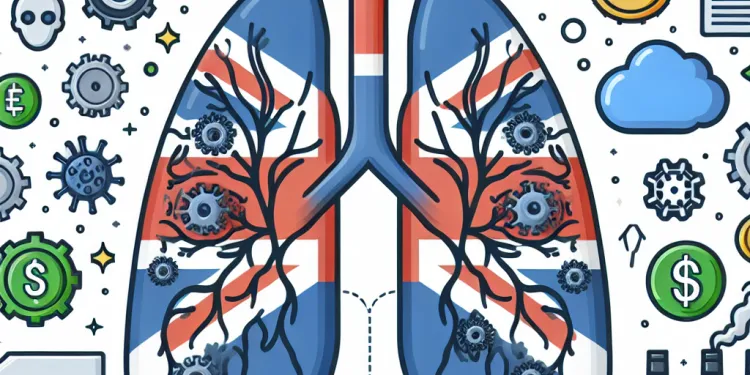
Find Help
More Items From Ergsy search
-
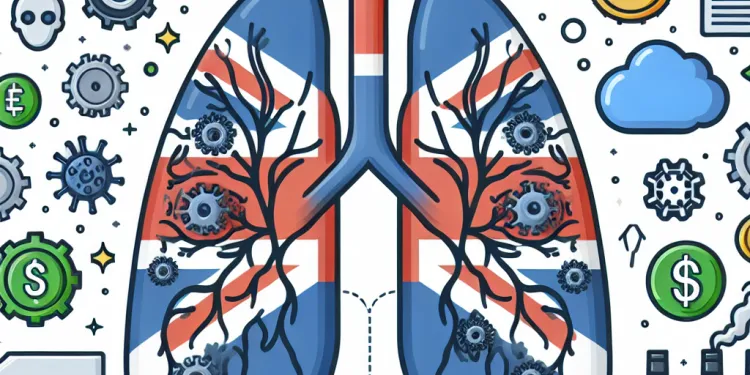
Air Pollution and Lung Cancer
Relevance: 100%
-
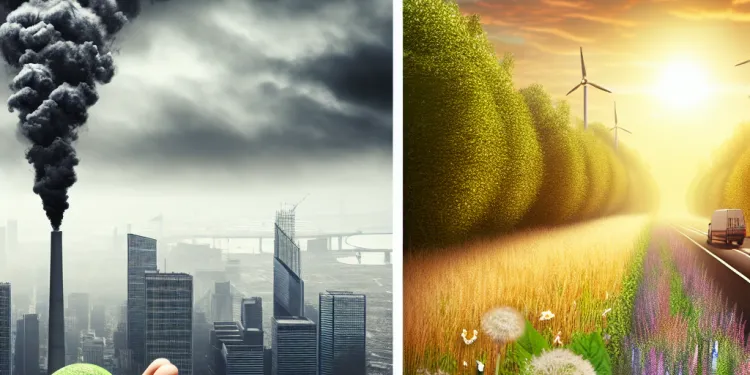
How does air pollution affect asthma?
Relevance: 60%
-

High Air Pollution Levels Linked to Rising Cases of Respiratory Issues
Relevance: 54%
-
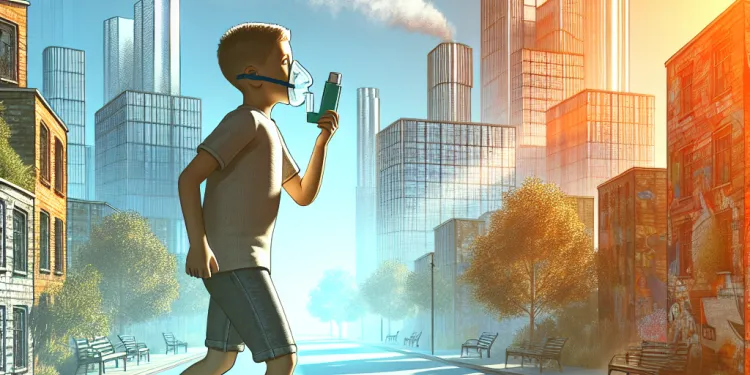
Rise in Childhood Asthma Linked to Air Pollution in Urban Areas
Relevance: 53%
-

Where can I find research studies on air pollution and asthma in my area?
Relevance: 49%
-

Where can I find information on air pollution and its effect on Asthma for my local area?
Relevance: 47%
-
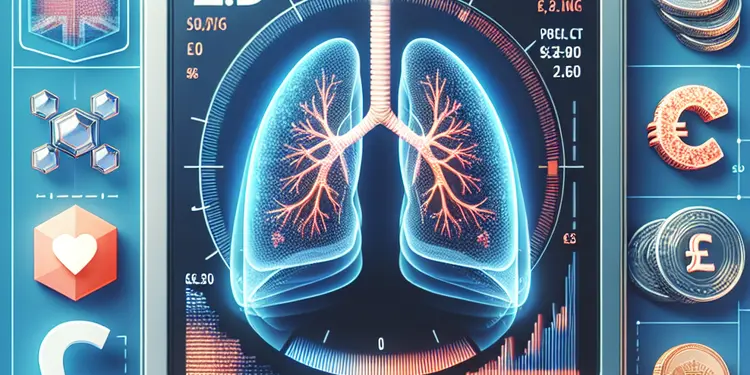
What is a low-dose CT scan for lung cancer?
Relevance: 43%
-
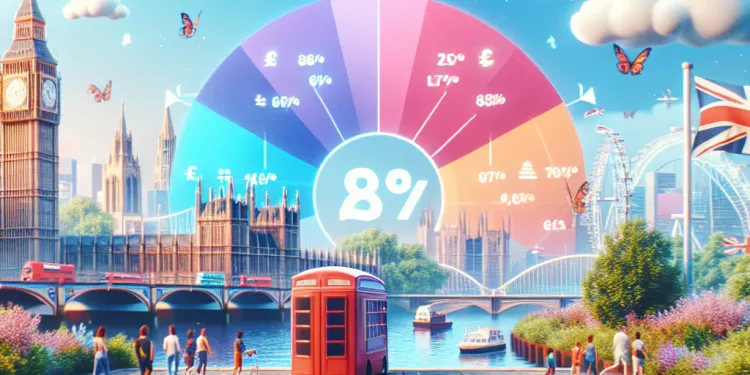
Is UK air quality changing?
Relevance: 43%
-
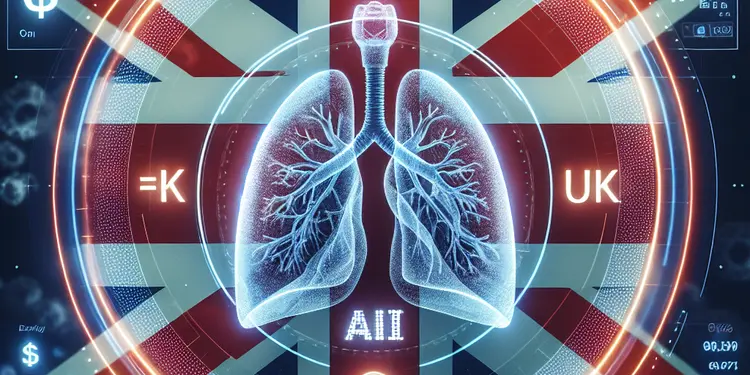
How do AI algorithms detect lung cancer in scans?
Relevance: 41%
-

How are AI and Robots used to detect lung cancer?
Relevance: 41%
-

What are some common pollutants that affect asthma sufferers in urban areas?
Relevance: 41%
-
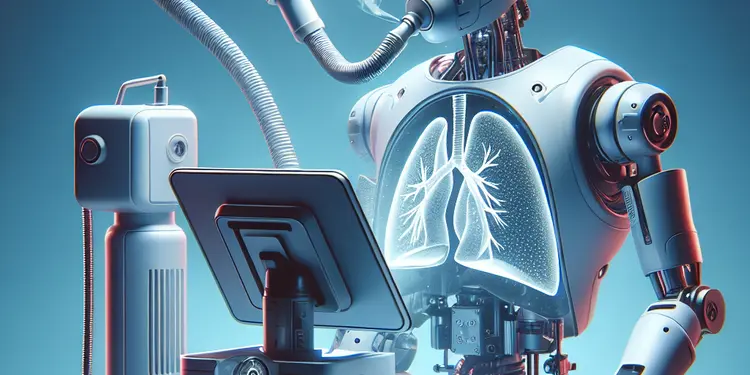
Can robots perform lung cancer screenings?
Relevance: 41%
-
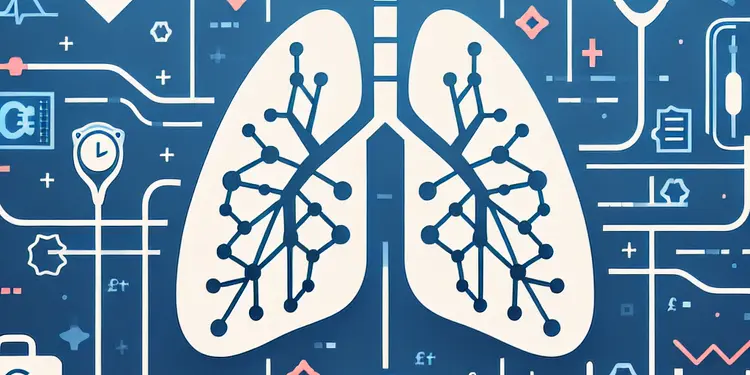
Can AI help in monitoring lung cancer progression?
Relevance: 41%
-
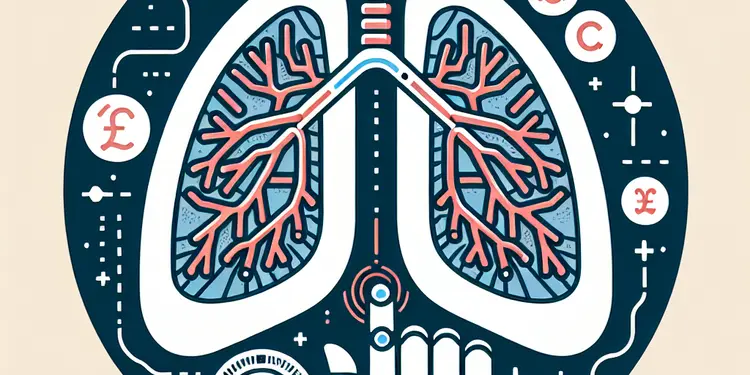
What is the advantage of using AI for lung cancer detection?
Relevance: 40%
-
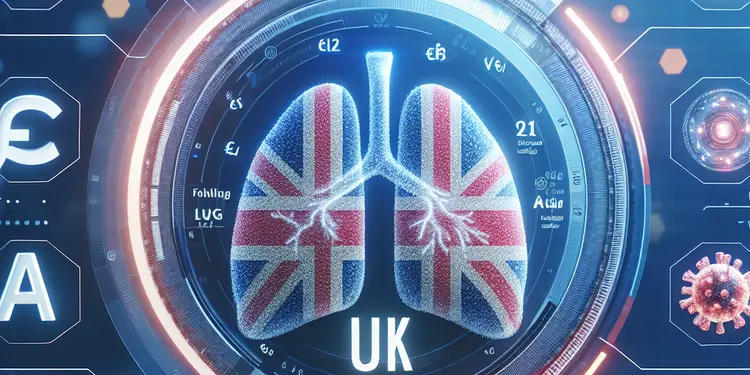
Is AI technology in lung cancer detection widely accepted by hospitals?
Relevance: 40%
-
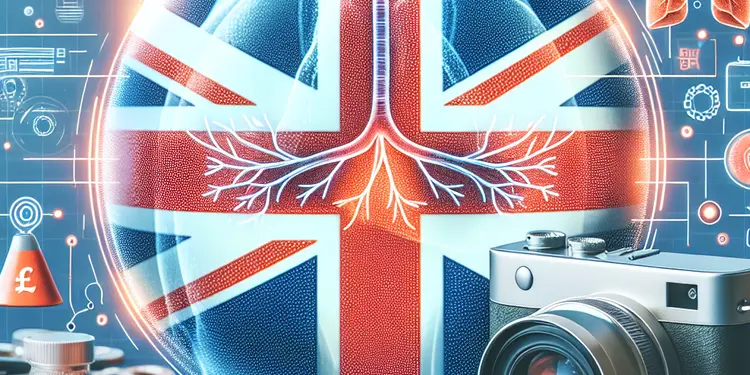
What role does AI play in lung cancer detection?
Relevance: 40%
-

How can AI improve patient outcomes in lung cancer?
Relevance: 40%
-

What is the future of AI and robotics in lung cancer detection and treatment?
Relevance: 40%
-
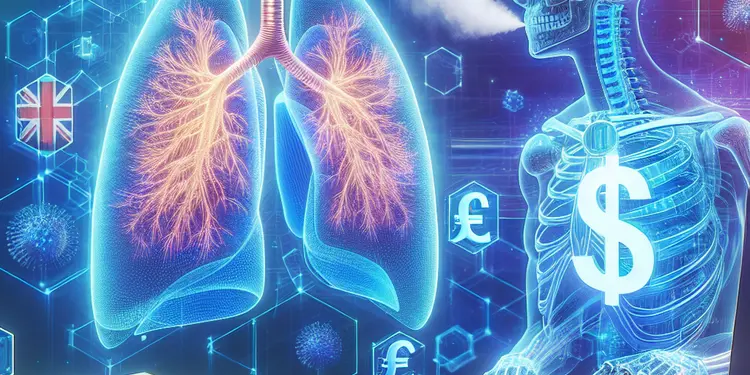
Do AI models for lung cancer require a lot of data to train?
Relevance: 40%
-

Are there any AI-based tools available for lung cancer risk assessment?
Relevance: 39%
-

What local organizations provide information on air pollution and asthma?
Relevance: 39%
-

What local organizations provide information on air pollution and asthma?
Relevance: 39%
-
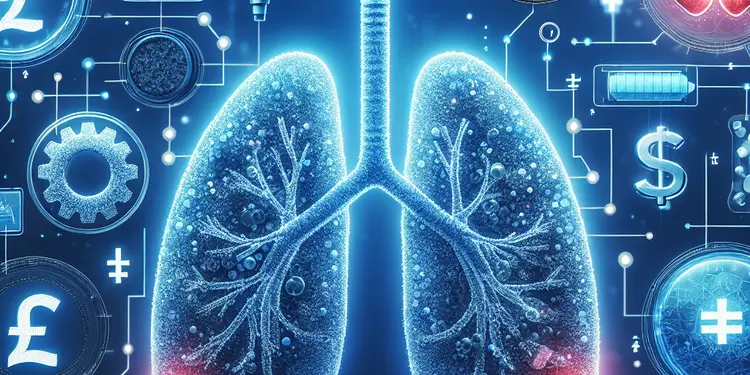
How does AI impact the cost of lung cancer detection?
Relevance: 39%
-

UK Study Links Poor Air Quality to Increased Asthma Cases in Urban Areas
Relevance: 39%
-
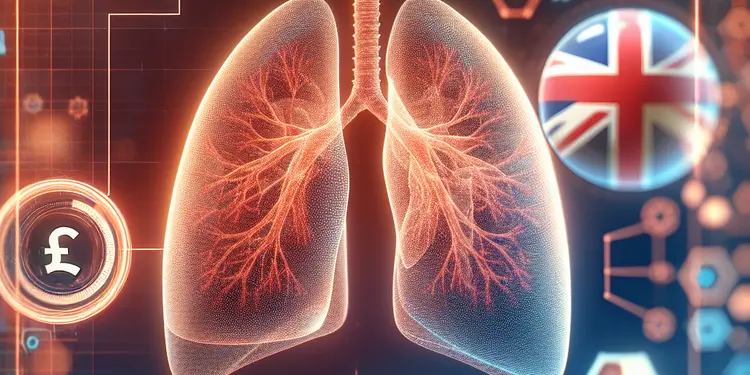
Which types of imaging data are analyzed by AI for lung cancer detection?
Relevance: 39%
-
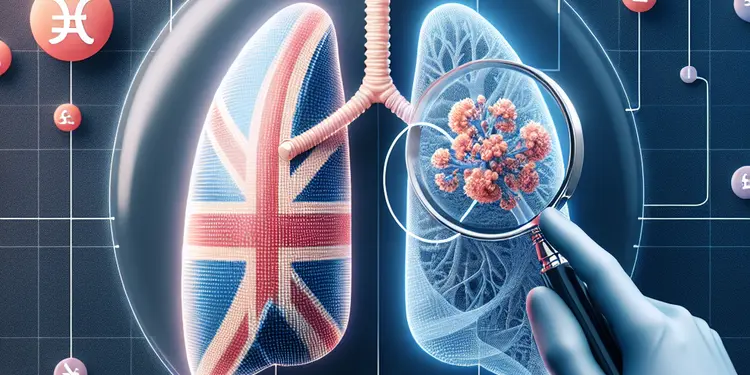
What challenges remain in using AI for lung cancer detection?
Relevance: 39%
-
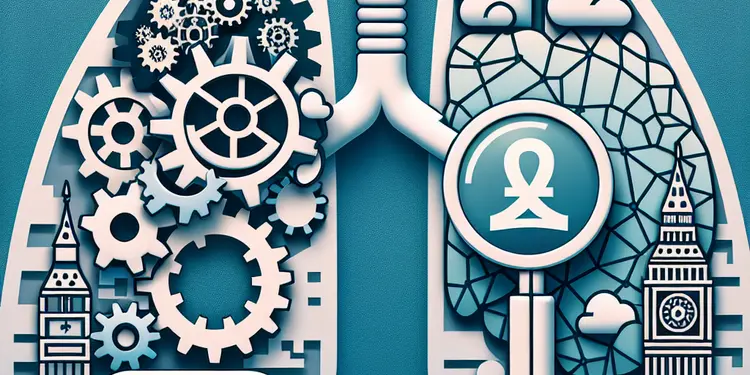
Have AI systems for lung cancer detection been clinically validated?
Relevance: 38%
-

Are AI systems used alone in lung cancer diagnosis or alongside human radiologists?
Relevance: 38%
-
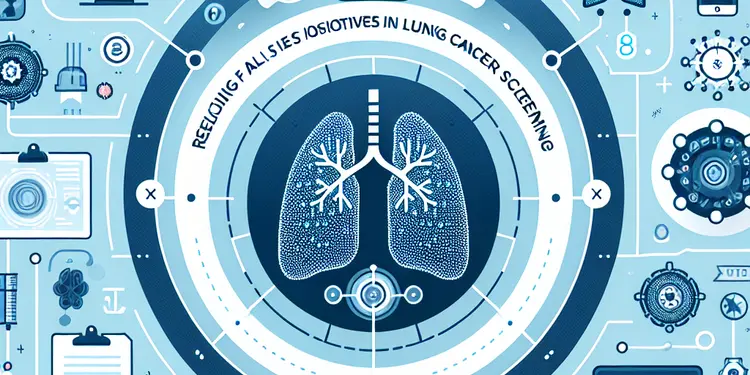
Can AI systems reduce the rate of false positives in lung cancer screening?
Relevance: 38%
-

Can AI predict lung cancer survival rates?
Relevance: 37%
-

Where can I find general information about air pollution and asthma?
Relevance: 37%
-
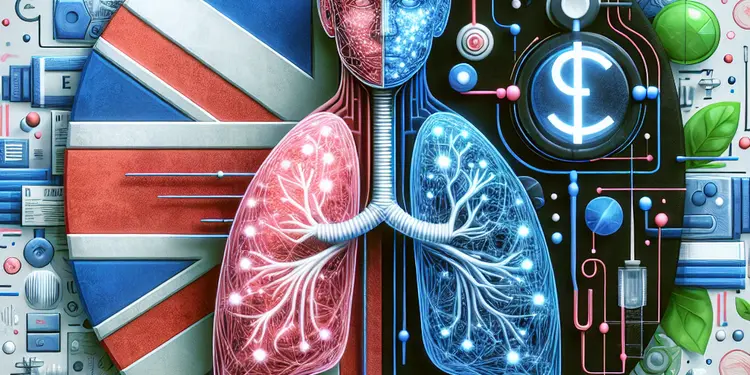
Are there ethical considerations in using AI for lung cancer detection?
Relevance: 37%
-

How do AI-assisted robotic systems enhance lung cancer surgeries?
Relevance: 36%
-

Are there mobile apps to track air quality and its impact on asthma?
Relevance: 36%
-

How do I check current air quality levels in my local area?
Relevance: 35%
-

Are there any exercises involved in air physiotherapy?
Relevance: 35%
-
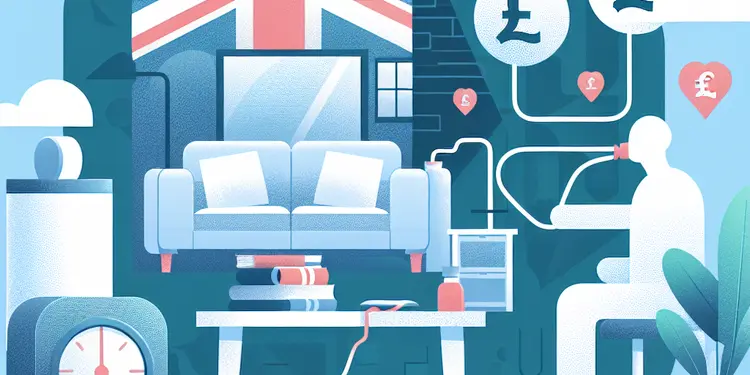
Can air physiotherapy be done at home?
Relevance: 35%
-
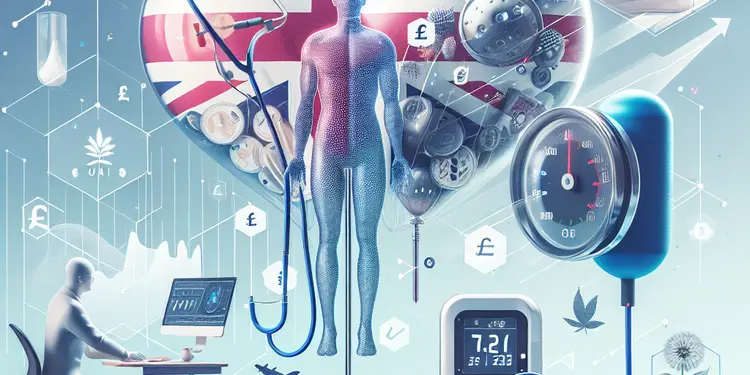
Who can benefit from air physiotherapy?
Relevance: 35%
-

How can I reduce my exposure to air pollution if I have asthma?
Relevance: 34%
-

What is air physiotherapy?
Relevance: 33%
Air Pollution and Lung Cancer in the United Kingdom
Understanding Air Pollution
Air pollution refers to the presence of harmful or excessive quantities of substances in the air we breathe. Common pollutants include particulate matter (PM), nitrogen dioxide (NO2), sulfur dioxide (SO2), carbon monoxide (CO), and volatile organic compounds (VOCs). The sources of these pollutants are varied, ranging from vehicle emissions and industrial discharges to agricultural activities and indoor sources such as tobacco smoke and household chemicals. In the UK, urban areas, especially cities like London and Manchester, face significant air pollution challenges due to high traffic density and industrial activities.
The Link Between Air Pollution and Lung Cancer
Numerous studies have shown a strong connection between air pollution and an increased risk of lung cancer. Particulate matter, especially PM2.5, can penetrate deep into the lungs and enter the bloodstream, leading to inflammation and potentially inciting cancerous changes in lung tissue over time. Research by organizations such as the World Health Organization (WHO) and Cancer Research UK indicates that long-term exposure to polluted air increases the likelihood of developing lung cancer in non-smokers. This risk is amplified in urban settings where pollution levels often exceed recommended limits.
Impact on Public Health in the UK
Lung cancer is one of the major health challenges posed by air pollution in the UK. Public health data shows that areas with higher levels of air pollution witness a corresponding rise in lung cancer cases. The government's Committee on the Medical Effects of Air Pollutants (COMEAP) estimates that air pollution contributes to thousands of lung cancer deaths annually in the UK. Furthermore, individuals with pre-existing respiratory conditions such as asthma or chronic obstructive pulmonary disease (COPD) are particularly vulnerable to the adverse effects of air pollution.
Efforts to Mitigate Risk
The UK government has implemented several measures to combat air pollution, including the Clean Air Strategy, aimed at reducing emissions from a variety of sources. Initiatives such as promoting electric vehicles, improving public transportation, and implementing low emission zones in cities are part of a broader effort to improve air quality. Public awareness campaigns also play a crucial role in educating citizens about the health risks of air pollution and encouraging lifestyle changes to reduce exposure. Ongoing research and policy adjustments are essential to tackle air pollution's impact on lung cancer rates effectively.
Air Pollution and Lung Cancer: Understanding the Connection
Air pollution is a critical environmental issue that poses serious health risks, especially concerning respiratory illnesses, including lung cancer. This article examines the link between air pollution and lung cancer with a focus on implications for residents in the United Kingdom.
Sources of Air Pollution in the UK
In the UK, air pollution primarily arises from vehicle emissions, industrial discharges, and residential heating. Common pollutants include particulate matter (PM2.5 and PM10), nitrogen dioxide (NO2), and sulfur dioxide (SO2). These pollutants can have detrimental effects on air quality and human health.
Impact of Air Pollution on Lung Health
Long-term exposure to air pollution has been associated with an increased risk of developing lung cancer. Fine particulate matter (PM2.5), which penetrates deep into the lungs, is particularly concerning. It causes inflammation and has been classified as a human carcinogen by the International Agency for Research on Cancer (IARC).
Research in the UK Context
Studies in the UK have shown that areas with higher levels of air pollution have correspondingly higher rates of lung cancer incidence. Urban areas, where pollution is more concentrated, display a heightened risk, emphasizing the need for active monitoring and control measures.
Government Initiatives and Public Health Measures
The UK government has initiated several strategies to improve air quality, including promoting clean energy, regulating emissions, and supporting public transportation. Public health campaigns aim to raise awareness about the risks of air pollution and encourage behaviors that mitigate exposure.
What Individuals Can Do to Protect Themselves
Individuals can mitigate the impact of air pollution on their health by staying informed about local air quality indices, reducing outdoor activities on high pollution days, using air purifiers indoors, and supporting sustainable initiatives in their communities.
Understanding the link between air pollution and lung cancer is crucial in crafting effective strategies to combat these health challenges in the UK. Continuous research, awareness, and stringent pollution control are key to protecting public health.
Air Pollution and Lung Cancer in the United Kingdom
What is Air Pollution?
Air pollution means there are bad things in the air we breathe. These bad things can make us sick. Some of them are dust and tiny particles, gases like nitrogen dioxide, sulfur dioxide, and carbon monoxide. There are also substances called volatile organic compounds. These harmful things come from places like cars, factories, farms, and even our homes. Cities like London and Manchester have a lot of pollution because of traffic and factories.
How Air Pollution is Linked to Lung Cancer
Scientists have found that dirty air can make people more likely to get lung cancer. Tiny particles in the air, called PM2.5, can go deep into our lungs and even into our blood. This can make our lungs sick and cause cancer. Groups like the World Health Organization and Cancer Research UK say that being around polluted air for a long time can lead to lung cancer, even if you don’t smoke. This is a big problem in cities with a lot of pollution.
Effects on Health in the UK
In the UK, lung cancer is a big health problem because of dirty air. Where there is more pollution, there are more cases of lung cancer. The government's health experts say that air pollution causes thousands of lung cancer deaths each year in the UK. People who already have breathing problems, like asthma or COPD, have a harder time when the air is polluted.
What is Being Done to Help
The UK government is working to make the air cleaner. They have plans like the Clean Air Strategy to reduce pollution. They want more people to use electric cars and take public transport. They are also setting up low emission zones in cities to keep the air clean. They teach people about the dangers of air pollution and tell them how to stay safe. It’s important to keep learning and improving to reduce the risk of lung cancer caused by dirty air.
Here's how you can protect yourself: Avoid walking on busy roads, use air purifiers at home, and pay attention to air quality reports. These steps can help keep your lungs healthy.
Air Pollution and Lung Cancer: Understanding the Connection
Air pollution means dirty air. It can make people sick. One big problem it causes is lung cancer. This article talks about how air pollution and lung cancer are connected in the UK.
Sources of Air Pollution in the UK
In the UK, dirty air mostly comes from cars, factories, and home heating. Bad stuff in the air includes tiny bits of dust (PM2.5 and PM10), nitrogen dioxide (NO2), and sulfur dioxide (SO2). These make the air bad for people and can make them sick.
Impact of Air Pollution on Lung Health
Breathing dirty air for a long time can give people lung cancer. Very small bits of dust, called PM2.5, are very bad. They go deep into our lungs and can make them inflamed. This is why they are linked to cancer.
Research in the UK Context
Studies in the UK show that places with more air pollution have more people getting lung cancer. Dirty air is worse in cities where more people live. So, it is important to check and fix air pollution there.
Government Initiatives and Public Health Measures
The UK government is trying to clean the air by using clean energy, controlling emissions, and supporting buses and trains. They also tell people about the dangers of dirty air and how to stay safe.
What Individuals Can Do to Protect Themselves
People can protect themselves by checking the air quality, not going outside when the air is very dirty, using air purifiers at home, and helping with clean air projects in their towns.
Knowing how air pollution and lung cancer are connected helps us fight these problems in the UK. Research, learning, and keeping the air clean are very important to keep people healthy.
Frequently Asked Questions
What is the relationship between air pollution and lung cancer?
Air pollution, specifically fine particulate matter (PM2.5) and certain toxic gases, has been linked to an increased risk of developing lung cancer. Prolonged exposure to high levels of air pollution can damage lung tissue and lead to cancerous changes.
Which pollutants are most strongly associated with lung cancer?
Particulate matter (PM2.5 and PM10), nitrogen dioxide (NO2), and ozone (O3) are among the pollutants most strongly associated with an increased risk of lung cancer. These pollutants originate from various sources such as vehicle emissions, industrial activities, and combustion of fossil fuels.
How does air pollution increase the risk of lung cancer?
Air pollutants can cause inflammation and oxidative stress in lung cells, leading to DNA damage and mutations. Over time, this can result in abnormal cell growth and the development of cancerous tumors.
Are certain populations in the UK at higher risk from air pollution-related lung cancer?
Yes, individuals living in urban areas with high traffic and industrial activities may be at greater risk. People with pre-existing respiratory conditions and those who smoke are also more susceptible to the harmful effects of air pollution.
What steps can individuals take to reduce their risk of lung cancer related to air pollution?
To reduce risk, individuals can limit outdoor activities on high pollution days, use air purifiers indoors, avoid smoking, and support policies aimed at reducing air pollution.
Has air pollution been declining in the UK?
Overall, air pollution levels have been declining in the UK over the past few decades due to stricter regulations and cleaner technology. However, certain areas, particularly urban centers, still experience concerning levels of pollution.
What role does the government play in controlling air pollution in the UK?
The UK government enacts and enforces regulations aimed at reducing emissions from vehicles, industries, and other sources. It also monitors air quality and works to meet national and international air quality standards.
How can the UK further reduce air pollution to combat lung cancer rates?
Further reductions could come from adopting electric vehicles, enhancing public transport, promoting renewable energy sources, and enforcing stricter emissions standards for industries.
Are indoor air pollutants also a concern for lung cancer?
Yes, indoor air pollutants such as tobacco smoke, radon, asbestos, and volatile organic compounds (VOCs) can also contribute to lung cancer risk.
How do PM2.5 particles affect lung health?
PM2.5 particles can penetrate deep into the lungs and even enter the bloodstream. They can cause inflammation, aggravate respiratory diseases, and potentially lead to lung cancer over long-term exposure.
What is the UK's Clean Air Strategy?
The Clean Air Strategy is the UK government's approach to tackling air pollution. It includes measures to improve air quality by reducing emissions from transport, industry, agriculture, and households.
Can wearing masks help reduce exposure to air pollution?
Wearing masks, especially those designed to filter out small particles like PM2.5, can help reduce exposure during high pollution episodes. However, they are not a substitute for broader efforts to reduce pollution.
How can communities help improve air quality?
Communities can get involved by advocating for local policies to reduce traffic emissions, planting trees, and promoting sustainable practices such as cycling and public transport.
Is lung cancer caused solely by air pollution?
No, lung cancer is caused by a combination of factors including smoking, genetic predisposition, and exposure to other carcinogens. Air pollution is one of many environmental risk factors.
Where can I find air quality information for my area in the UK?
Air quality information can be accessed through the UK government’s air pollution data website, local council resources, or through air quality monitoring apps and services.
How does dirty air cause lung cancer?
Some bad things in the air can harm our lungs. This can make people sick with lung cancer.
- Dirty air has tiny bad bits called pollutants.
- When we breathe, these bits go into our lungs.
- This can hurt our lungs and make us sick.
- Over time, this can cause lung cancer.
Helpful Tips:
- Use masks outside to help breathe cleaner air.
- Try to stay indoors when air quality is poor.
- Use an air purifier at home if you can.
Breathing dirty air can make your lungs sick. Tiny bits of dirt in the air, called PM2.5, and some bad gases can hurt your lungs. If you breathe this dirty air for a long time, it can cause lung cancer.
What things in the air can make lung cancer more likely?
Some dirty things in the air can hurt our lungs. Here’s what to know:
- Smoke from cars and factories is bad.
- Cigarette smoke is very bad for lungs.
- Dust and dirt in the air can be harmful too.
Remember, wearing a mask or staying indoors on days with dirty air can help you stay safe.
There are tiny bits of dust and dirt in the air called PM2.5 and PM10. There are also gases called nitrogen dioxide (NO2) and ozone (O3). Breathing in too much of these can make you more likely to get lung cancer.
These bad things come from places like cars and trucks, factories, and burning things like coal and oil.
Tips to stay healthy:
- Try to stay away from busy roads with lots of traffic.
- Stay indoors on days when the air pollution is high.
- Use air purifiers at home to clean the air.
How can dirty air make it more likely to get lung cancer?
Breathing dirty air can hurt your lungs. This can make you more likely to get sick with lung cancer.
Here are a few simple things that can help:
- Spend more time in places with clean air.
- Wear a mask when the air is dirty.
- Get help from a doctor if you have trouble breathing.
Bad stuff in the air can hurt your lungs. It can make them swollen and stressed. This can harm the DNA in your lung cells.
If this happens again and again, the lung cells can grow in a wrong way. Then, lumps called tumors can grow. These lumps can cause a sickness called cancer.
It’s a good idea to use tools like air purifiers at home or wear masks outside to help keep your lungs safe. Talking to a doctor can also help you learn more.
Do some people in the UK have a higher chance of getting lung cancer from dirty air?
Some people might get sick from the air more than others. This is because they live in places where the air is not clean. When the air is dirty, it can make people’s lungs sick. This might lead to a disease called lung cancer.
It’s important to learn more about this. If you are worried, you can look for more information. You can also talk to someone who knows a lot about health, like a doctor.
If reading is hard, ask someone you trust to help read with you.
People who live in busy cities with lots of cars and factories might have more health problems. If you already have a lung problem or if you smoke, air pollution can make you feel worse.
How can people lower their chance of getting lung cancer from dirty air?
Here are some simple steps:
- Stay indoors: Stay inside during days when air pollution is high. You can listen to the news or use a weather app to know when the air might be bad.
- Use air filters: Use air purifiers in your home. They help clean the air you breathe.
- Wear a mask: When the air is dirty, wear a mask outside to protect your lungs.
- Green spaces: Visit parks and places with lots of trees. Trees help make the air cleaner.
- Don't smoke: Avoid smoking and places where people smoke. Smoking is very harmful to your lungs.
If the air is dirty, here are some things you can do to stay safe:
- Try not to go outside when the air is bad.
- Use an air machine to keep the air clean inside your house.
- Do not smoke.
- Help support rules that make the air cleaner.
Is air pollution getting better in the UK?
Air pollution means dirty air. It can be bad for our health.
Is the air in the UK getting cleaner or not?
To help understand:
- Look at pictures or charts. They can show if air is cleaner.
- Ask someone to explain it to you.
- Use tools like reading apps that can help you read.
In the UK, the air is getting cleaner because there are more rules and better technology. But some places, like big cities, still have bad air.
What does the government do to help clean the air in the UK?
The government makes rules to keep the air clean.
They make sure factories and cars do not make too much smoke.
They also help cities have more buses and trains that do not make smoke.
It is like making sure everyone shares toys nicely, so it stays fun for everyone.
Looking at pictures and using apps can help you understand more.
The UK government makes rules to help cut down the pollution from cars, factories, and other things. It checks the air to make sure it is clean and tries to follow air quality rules.
How can the UK make the air cleaner to help people not get lung cancer?
Air can be dirty and make people sick. We can make our air cleaner. This can help people stay healthy and not get lung cancer. Here are some ways to make the air cleaner: - **Drive less:** Use buses, trains, bikes, or walk instead of driving cars. - **Plant trees:** Trees help clean the air. - **Use less electricity:** Turn off lights and things that use power when you do not need them. - **Recycle:** Recycling helps reduce pollution. You can use these tools to help: - **Pictures and videos:** They can show how to keep the air clean. - **Simple words:** Use easy words to explain how to make the air cleaner. - **Songs and games:** These can make learning fun and easy. Let's keep our air clean and help everyone stay healthy!We can make less pollution by using electric cars, making buses and trains better, using more solar and wind power, and making rules for factories to pollute less.
Can air inside make you sick with lung cancer?
Yes, some things inside your home can make the air bad for your lungs. This can make it more likely for you to get lung cancer. These things include smoke from cigarettes, radon gas, a material called asbestos, and chemicals with strong smells called VOCs.
Using an air purifier and opening windows to let in fresh air can help make the air at home better. It's also important to stop smoking and check for radon in your home.
How do PM2.5 particles affect lung health?
What are PM2.5 particles?
PM2.5 particles are tiny bits of dirt in the air. They are much smaller than a human hair.
How do they get into the air?
These tiny bits come from car smoke, factories, and burning things like wood or coal.
What happens when we breathe them in?
When we breathe, these bits can go deep into our lungs. This is not good for our health.
How can they hurt our lungs?
- They can make it harder to breathe.
- They can cause coughing.
- They might make asthma worse.
What can help us stay safe?
- Try to stay indoors on days when the air is dirty.
- Use masks to cover your nose and mouth when outside.
- An air purifier can clean the air indoors.
Use helpful tools!
- Pictures can help us understand better.
- Ask someone to read with you.
PM2.5 are tiny particles in the air. They can go deep into your lungs and even get into your blood. These particles can make it hard for some people to breathe. Breathing them in for a long time might make people very sick and could even cause lung cancer.
To help protect yourself, you can:
- Wear a mask outside when the air is bad.
- Stay indoors when air pollution is high.
- Use an air purifier at home.
What is the UK's Clean Air Strategy?
The UK's Clean Air Strategy is a plan to make the air cleaner. Clean air is important for our health.
The plan helps to reduce pollution from cars, factories, and farms. Pollution makes the air dirty and can make people sick.
The government wants to make sure everyone has clean air to breathe.
If you want to learn more, you can look at videos or pictures. These can help you understand better.
The Clean Air Plan is a plan by the UK government to make the air cleaner. It has ideas to reduce dirty air from cars, factories, farms, and homes.
Do masks help keep air pollution away?
Yes, masks can help. Here are some tips to make it easier: - **Wear a mask:** It can help stop some bad air from going in your nose and mouth. - **Choose the right mask:** Some masks work better. Look for a mask with filters. - **Use apps or websites:** Check air quality online to know when to wear a mask. - **Try to stay inside:** If the air outside is bad, staying indoors can help. - **Ask someone for help:** Talk to a friend or family member if you need more information. These can help keep you safe from bad air.Wearing masks can help keep bad air away. This is important when the air is dirty. Some masks can catch very small bits of dirt in the air, like PM2.5.
But remember, wearing a mask isn't enough. We still need to work hard to make our air cleaner.
If you find reading hard, you can try using tools that read out loud or show pictures. These can help you understand better.
How can people help make the air cleaner?
Here are some simple ways people can help make the air better:
- Walk or ride a bike instead of using a car. This means fewer cars and less smoke.
- Use public buses or trains. More people on buses means fewer cars on the road.
- Plant more trees and plants. Trees and plants help clean the air.
- Save electricity. Turn off lights and TVs when you are not using them. This helps make less smoke from power stations.
- Recycle more. Recycling helps keep the air clean by reducing waste.
- Talk to others about keeping the air clean. More people can help if they know how.
Tools to help:
- Use pictures and signs to remind people to save energy and recycle.
- Watch videos about clean air and why it is important.
Communities can help by asking for rules to make less traffic pollution, planting trees, and doing things like riding bikes and using buses to help the planet.
Does air pollution alone cause lung cancer?
No, lung cancer happens because of different things like smoking, having certain genes, and being around harmful substances. Breathing in dirty air is just one thing that can make it more likely.
How can I find out about the air quality where I live in the UK?
1. Look on the internet: You can use websites to check the air quality. Try UK Air.
2. Use an app: Some mobile apps can tell you about air pollution near you. Try using an app like Air Quality Index.
3. Ask for help: If you find it hard to find this information, ask a family member, teacher, or friend for help.
You can find out how clean the air is by using the UK government's website. You can also check with your local council or use apps on your phone that tell you about air quality.
Useful Links
Have you found an error, or do you have a link or some information you would like to share? Please let us know using the form below.
-->
This website offers general information and is not a substitute for professional advice.
Always seek guidance from qualified professionals.
If you have any medical concerns or need urgent help, contact a healthcare professional or emergency services immediately.
Some of this content was generated with AI assistance. We’ve done our best to keep it accurate, helpful, and human-friendly.
- Ergsy carfully checks the information in the videos we provide here.
- Videos shown by Youtube after a video has completed, have NOT been reviewed by ERGSY.
- To view, click the arrow in centre of video.
- Most of the videos you find here will have subtitles and/or closed captions available.
- You may need to turn these on, and choose your preferred language.
- Go to the video you'd like to watch.
- If closed captions (CC) are available, settings will be visible on the bottom right of the video player.
- To turn on Captions, click settings .
- To turn off Captions, click settings again.
More Items From Ergsy search
-

Air Pollution and Lung Cancer
Relevance: 100%
-

How does air pollution affect asthma?
Relevance: 60%
-

High Air Pollution Levels Linked to Rising Cases of Respiratory Issues
Relevance: 54%
-

Rise in Childhood Asthma Linked to Air Pollution in Urban Areas
Relevance: 53%
-

Where can I find research studies on air pollution and asthma in my area?
Relevance: 49%
-

Where can I find information on air pollution and its effect on Asthma for my local area?
Relevance: 47%
-

What is a low-dose CT scan for lung cancer?
Relevance: 43%
-

Is UK air quality changing?
Relevance: 43%
-

How do AI algorithms detect lung cancer in scans?
Relevance: 41%
-

How are AI and Robots used to detect lung cancer?
Relevance: 41%
-

What are some common pollutants that affect asthma sufferers in urban areas?
Relevance: 41%
-

Can robots perform lung cancer screenings?
Relevance: 41%
-

Can AI help in monitoring lung cancer progression?
Relevance: 41%
-

What is the advantage of using AI for lung cancer detection?
Relevance: 40%
-

Is AI technology in lung cancer detection widely accepted by hospitals?
Relevance: 40%
-

What role does AI play in lung cancer detection?
Relevance: 40%
-

How can AI improve patient outcomes in lung cancer?
Relevance: 40%
-

What is the future of AI and robotics in lung cancer detection and treatment?
Relevance: 40%
-

Do AI models for lung cancer require a lot of data to train?
Relevance: 40%
-

Are there any AI-based tools available for lung cancer risk assessment?
Relevance: 39%
-

What local organizations provide information on air pollution and asthma?
Relevance: 39%
-

What local organizations provide information on air pollution and asthma?
Relevance: 39%
-

How does AI impact the cost of lung cancer detection?
Relevance: 39%
-

UK Study Links Poor Air Quality to Increased Asthma Cases in Urban Areas
Relevance: 39%
-

Which types of imaging data are analyzed by AI for lung cancer detection?
Relevance: 39%
-

What challenges remain in using AI for lung cancer detection?
Relevance: 39%
-

Have AI systems for lung cancer detection been clinically validated?
Relevance: 38%
-

Are AI systems used alone in lung cancer diagnosis or alongside human radiologists?
Relevance: 38%
-

Can AI systems reduce the rate of false positives in lung cancer screening?
Relevance: 38%
-

Can AI predict lung cancer survival rates?
Relevance: 37%
-

Where can I find general information about air pollution and asthma?
Relevance: 37%
-

Are there ethical considerations in using AI for lung cancer detection?
Relevance: 37%
-

How do AI-assisted robotic systems enhance lung cancer surgeries?
Relevance: 36%
-

Are there mobile apps to track air quality and its impact on asthma?
Relevance: 36%
-

How do I check current air quality levels in my local area?
Relevance: 35%
-

Are there any exercises involved in air physiotherapy?
Relevance: 35%
-

Can air physiotherapy be done at home?
Relevance: 35%
-

Who can benefit from air physiotherapy?
Relevance: 35%
-

How can I reduce my exposure to air pollution if I have asthma?
Relevance: 34%
-

What is air physiotherapy?
Relevance: 33%


